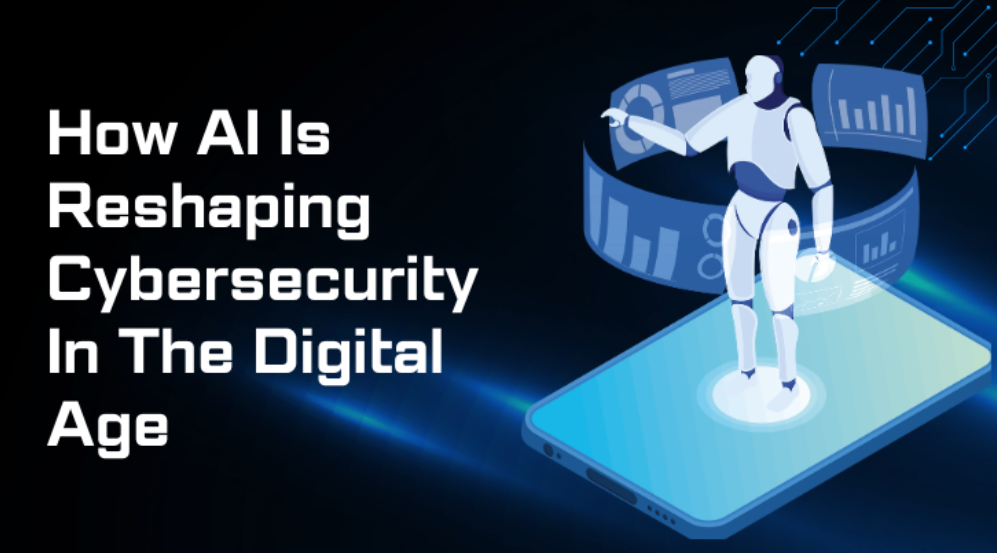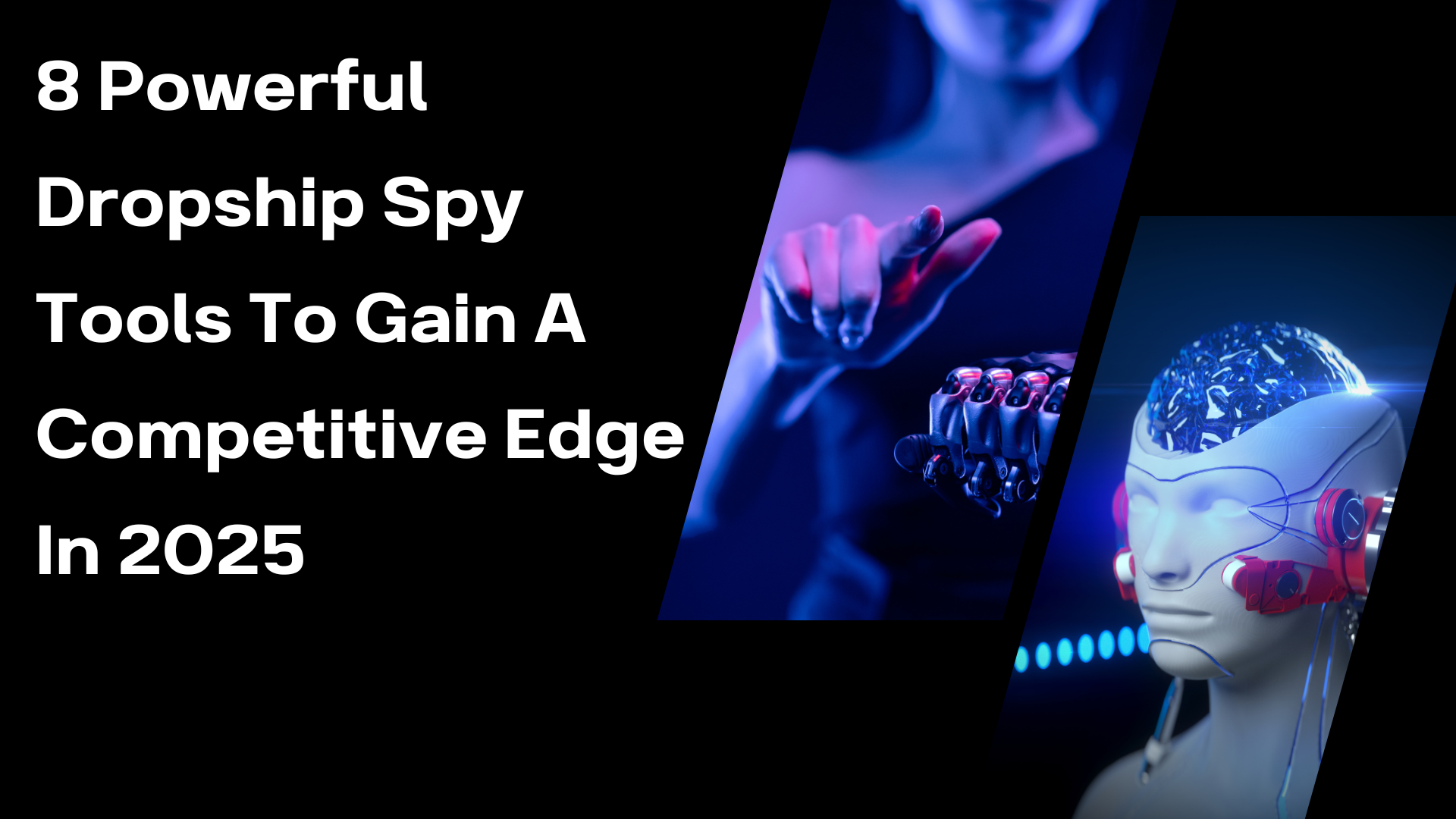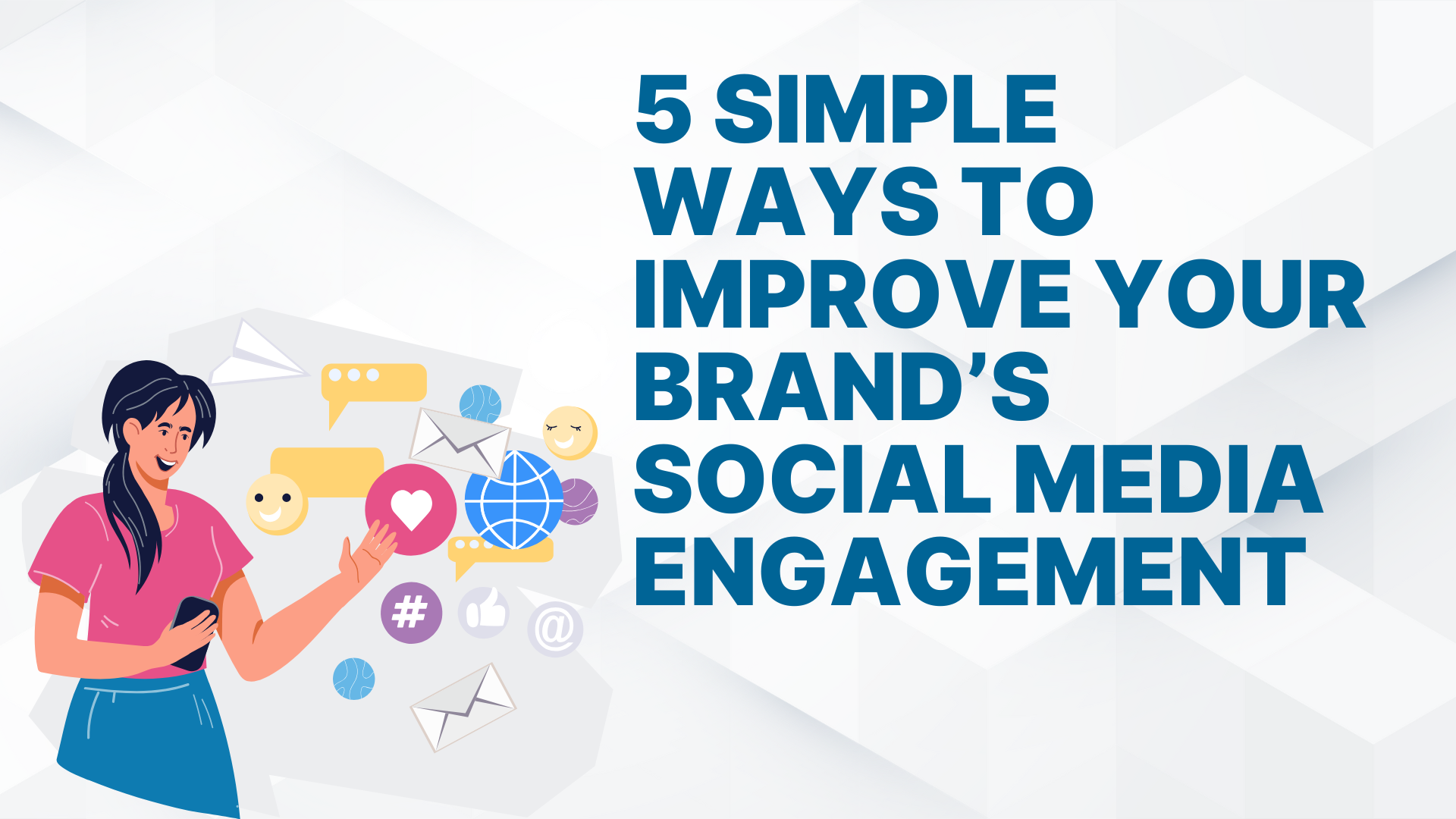What Is An AI Business Tool?
An AI business tool is a software application or platform that leverages artificial intelligence (AI) and machine learning technologies to assist or enhance various aspects of business operations. These tools are designed to automate tasks, make data-driven decisions, improve efficiency, and enable businesses to gain valuable insights from their data. AI business tools can be applied across a wide range of industries and functions, making them invaluable assets for modern enterprises.
Here Are Some Examples Of AI Tools For Startups And Small Business:
Using artificial intelligence (AI) tools can be a game-changer for startups and small businesses. These tools can help automate tasks, gain insights from data, enhance customer experiences, and improve overall efficiency. In this comprehensive guide, we'll explore some of the best AI tools across various business functions, along with their benefits and potential use cases.
1. AI-Powered Chatbots
Benefits:
Customer Support: Chatbots can provide 24/7 customer support, answer frequently asked questions, and assist with common issues.
Lead Generation: They can engage website visitors, qualify leads, and capture contact information for follow-up.
Cost-Efficiency: Reduce the need for human customer support agents, especially for routine queries.
Top AI Chatbot Tools:
Dialogflow: Google's Dialogflow offers natural language understanding for building conversational interfaces.
IBM Watson Assistant: Provides AI-powered chatbot capabilities with integration options for various platforms.
Intercom: Offers a chatbot platform for sales, marketing, and support purposes.
Drift: Specializes in conversational marketing and sales bots.
Zendesk Answer Bot: Helps businesses automate customer support with AI-driven responses.
Use Cases:
E-commerce: Assist customers with product recommendations, order tracking, and FAQs.
Lead Generation: Qualify leads and schedule appointments for sales teams.
Support: Resolve common technical issues and provide self-service options.
2. Natural Language Processing (NLP) Tools
Benefits:
Text Analysis: Extract insights from text data, such as sentiment analysis, keyword extraction, and language translation.
Content Generation: Automatically generate written content for marketing, social media, or reports.
Personalization: Tailor content and recommendations to individual user preferences.
Top NLP Tools:
GPT-3: OpenAI's GPT-3 is a versatile language model for text generation and understanding.
IBM Watson Natural Language Understanding: Analyzes text for sentiment, entities, and concepts.
Google Cloud Natural Language: Offers NLP capabilities for various applications.
TextBlob: A simple NLP library for Python.
spaCy: An open-source NLP library for advanced text processing.
Use Cases:
Social Media Analysis: Monitor brand sentiment on social platforms.
Content Marketing: Generate blog post outlines or product descriptions.
Multilingual Support: Translate customer reviews or content for a global audience.
3. Predictive Analytics and Machine Learning
Benefits:
Data-Driven Decision Making: Make informed decisions based on predictive models and insights.
Customer Segmentation: Identify target customer groups for marketing and product development.
Risk Management: Predict potential business risks and take proactive measures.
Top Predictive Analytics and ML Tools:
Amazon SageMaker: A fully managed service for building, training, and deploying machine learning models.
Microsoft Azure Machine Learning: Offers tools and services for building, training, and deploying models.
Google Cloud AutoML: Simplifies the creation of custom machine learning models.
RapidMiner: An integrated data science platform for analytics and modeling.
DataRobot: Provides automated machine learning capabilities.
Use Cases:
Sales Forecasting: Predict future sales trends based on historical data.
Churn Prediction: Identify customers at risk of leaving and implement retention strategies.
Inventory Optimization: Optimize stock levels to reduce overstock or shortages.
4. Image and Video Recognition Tools
Benefits:
Content Analysis: Automatically tag and categorize images and videos.
Security: Enhance security with facial recognition and object detection.
Visual Search: Enable users to search for products by uploading images.
Top Image and Video Recognition Tools:
Amazon Rekognition: Offers image and video analysis for a wide range of applications.
Google Cloud Vision: Detects objects, faces, and text within images and videos.
IBM Watson Visual Recognition: Provides image and video analysis with machine learning.
Use Cases:
E-commerce: Allow users to search for products by taking pictures or screenshots.
Security: Implement facial recognition for access control.
Content Moderation: Automatically filter out inappropriate content in user-generated content.
5. Virtual Assistants and AI-Powered Productivity Tools
Benefits:
Task Automation: Delegate routine tasks like scheduling, email management, and data entry.
Voice Commands: Control devices and perform tasks using voice commands.
Information Retrieval: Quickly access information from the web or internal databases.
Top Virtual Assistant and Productivity Tools:
Google Assistant: Offers voice-activated assistance and integrates with various Google services.
Cortana: Microsoft's virtual assistant for tasks, reminders, and search.
Siri: Apple's virtual assistant available on iOS devices.
Zapier: Automates workflows and connects various web apps.
Rasa: An open-source conversational AI platform.
Use Cases:
Time Management: Schedule appointments, set reminders, and manage to-do lists.
Data Entry: Automate data extraction and input tasks.
Voice Interfaces: Develop voice-controlled applications and devices.
6. AI-Powered Email Marketing
Benefits:
Personalization: Send highly personalized email campaigns based on user behavior and preferences.
Segmentation: Automatically segment email lists for targeted marketing.
A/B Testing: Optimize email subject lines, content, and send times for better engagement.
Top AI Email Marketing Tools:
Mailchimp: Offers AI-driven recommendations for email content and send times.
HubSpot: Provides AI-powered email marketing and automation features.
Campaign Monitor: Uses AI for email personalization and optimization.
Use Cases:
Welcome Series: Automatically send personalized welcome emails to new subscribers.
Cart Abandonment Recovery: Trigger emails to recover abandoned shopping carts.
Content Recommendations: Suggest relevant blog posts or products in email newsletters.
7. AI-Powered CRM (Customer Relationship Management)
Benefits:
Lead Scoring: Automatically score and prioritize leads based on their likelihood to convert.
Sales Automation: Streamline sales processes with automated lead nurturing and follow-ups.
Customer Insights: Gain a deeper understanding of customer behavior and preferences.
Top AI CRM Tools:
Salesforce Einstein: Integrates AI into various aspects of CRM, including sales and marketing.
HubSpot CRM: Offers AI-powered features for sales and marketing automation.
Zoho CRM: Provides AI-driven sales and marketing insights.
Use Cases:
Lead Qualification: Automatically identify high-potential leads for sales teams.
Personalized Outreach: Send personalized emails and messages based on customer behavior.
Sales Forecasting: Predict future sales based on historical data.
8. AI-Powered Analytics and Business Intelligence
Benefits:
Data Visualization: Create interactive data dashboards for better decision-making.
Data Exploration: Discover hidden insights and trends within your data.
Automated Reporting: Generate automated reports with key performance indicators.
Top AI Analytics and BI Tools:
Tableau: Offers AI-powered data visualization and analytics.
Power BI: Microsoft's business analytics service with AI capabilities.
Qlik: Provides AI-driven data analytics and insights.
Use Cases:
Sales Analytics: Visualize sales data and track performance metrics.
Financial Analysis: Analyze financial data and forecast future trends.
Customer Insights: Discover customer behavior patterns and preferences.
9. AI-Powered HR and Recruitment
Benefits:
Candidate Screening: Automate the initial screening of job applicants.
Employee Engagement: Use AI to monitor and improve employee satisfaction and retention.
Predictive HR Analytics: Forecast workforce needs and identify potential issues.
Top AI HR and Recruitment Tools:
LinkedIn Talent Solutions: Offers AI-driven candidate recommendations and job matching.
Workday: Provides AI-powered HR and finance solutions.
Breezy HR: Automates recruiting tasks and candidate communication.
Use Cases:
Resume Screening: Automatically filter and rank resumes based on job requirements.
Employee Feedback: Collect and analyze employee feedback for HR insights.
Workforce Planning: Predict staffing needs and optimize workforce allocation.
10. AI-Powered E-commerce Tools
Benefits:
Personalized Recommendations: Recommend products based on user behavior and preferences.
Dynamic Pricing: Adjust product prices in real-time based on demand and competition.
Inventory Management: Optimize inventory levels and reduce overstock.
Top AI E-commerce Tools:
Dynamic Yield: Offers personalization, recommendations, and A/B testing for e-commerce.
Prisync: Helps e-commerce businesses monitor and optimize pricing strategies.
LimeSpot: Provides AI-driven personalization for e-commerce websites.
Use Cases:
Product Recommendations: Suggest related products to increase cross-selling.
Abandoned Cart Recovery: Send personalized reminders to customers who abandon their carts.
Pricing Optimization: Adjust prices based on demand and competitor pricing.
11. AI in Finance and Fintech
Benefits:
Fraud Detection: Identify and prevent fraudulent transactions in real-time.
Credit Scoring: Use alternative data sources and AI to assess creditworthiness.
Financial Forecasting: Predict market trends and investment opportunities.
Top AI Finance and Fintech Tools:
Kount: Offers AI-driven fraud prevention for online payments.
ZestFinance: Provides AI-powered underwriting and credit scoring solutions.
Yseop Compose: Generates AI-driven financial reports and documents.
Use Cases:
Fraud Prevention: Detect and block fraudulent transactions to protect customers.
Investment Advisory: Provide personalized investment recommendations based on user goals.
Regulatory Compliance: Ensure compliance with financial regulations through AI-driven monitoring.
12. AI in Healthcare
Benefits:
Diagnosis and Treatment: Assist medical professionals in diagnosing diseases and planning treatments.
Patient Engagement: Improve patient engagement through chatbots and virtual health assistants.
Drug Discovery: Accelerate drug discovery and development through AI-driven research.
Top AI Healthcare Tools:
IBM Watson Health: Offers AI-powered solutions for healthcare providers and researchers.
Tempus: Uses AI and data analytics for precision medicine and cancer care.
PathAI: Specializes in AI-driven pathology and diagnostic solutions.
Use Cases:
Medical Imaging: Enhance the accuracy of medical image analysis, such as X-rays and MRIs.
Telemedicine: Enable virtual consultations and remote patient monitoring.
Drug Repurposing: Identify existing drugs that can be repurposed for new treatments.
13. AI in Manufacturing and Industry
Benefits:
Predictive Maintenance: Predict when equipment is likely to fail and schedule maintenance proactively.
Quality Control: Use computer vision for automated quality inspection.
Supply Chain Optimization: Optimize supply chain processes for cost reduction.
Top AI Manufacturing and Industry Tools:
Uptake: Provides AI solutions for industrial asset performance management.
Sight Machine: Offers manufacturing analytics and AI-driven insights.
C3.ai: Specializes in enterprise AI applications, including manufacturing.
Use Cases:
Predictive Maintenance: Reduce downtime and maintenance costs by predicting equipment failures.
Quality Inspection: Ensure consistent product quality with automated visual inspections.
Inventory Management: Optimize inventory levels and reduce carrying costs.
14. AI in Education
Benefits:
Personalized Learning: Provide customized learning experiences for students.
Administrative Efficiency: Automate administrative tasks like grading and scheduling.
Data Analytics: Analyze student performance data to improve educational outcomes.
Top AI Education Tools:
Knewton: Offers adaptive learning technology for personalized education.
Cognii: Provides AI-powered virtual tutors for online courses.
ScribeSense: Automates the transcription and analysis of classroom lectures.
Use Cases:
Adaptive Learning: Tailor educational content to individual student needs and abilities.
Grading Automation: Speed up the grading process for assignments and tests.
Student Engagement: Use AI chatbots for student queries and support.
15. AI in Agriculture
Benefits:
Precision Farming: Optimize crop management and resource allocation.
Crop Monitoring: Monitor crop health and detect diseases early.
Supply Chain Optimization: Improve the efficiency of agricultural supply chains.
Top AI Agriculture Tools:
FarmWise: Offers AI-driven robots for weeding and crop care.
Taranis: Provides AI-powered crop monitoring and precision agriculture solutions.
Granular: Specializes in farm management software with AI analytics.
Use Cases:
Soil Analysis: Analyze soil data to determine optimal planting and fertilization.
Pest Detection: Identify pests and diseases affecting crops through image analysis.
Crop Yield Prediction: Forecast crop yields based on weather and environmental data.
16. AI in Legal Services
Benefits:
Document Analysis: Automate the review and analysis of legal documents.
Legal Research: Speed up legal research with AI-powered search tools.
Contract Analysis: Extract key information from contracts and agreements.
Top AI Legal Services Tools:
ROSS Intelligence: Offers AI-powered legal research and analytics.
Kira: Specializes in contract analysis and data extraction.
Casetext: Provides AI-enhanced legal research and analysis.
Use Cases:
Document Review: Quickly identify relevant documents in large legal cases.
Contract Review: Extract and summarize key terms and clauses from contracts.
Legal Research: Find relevant cases, statutes, and regulations for legal cases.
17. AI in Real Estate
Benefits:
Property Valuation: Use AI to estimate property values based on market data.
Property Search: Enhance property search with image recognition and natural language processing.
Customer Engagement: Improve customer interactions through chatbots and virtual assistants.
Top AI Real Estate Tools:
Zillow: Uses AI for property valuation and predictions.
Reonomy: Offers AI-driven commercial real estate data and analytics.
Trulia: Provides AI-enhanced property search and neighborhood insights.
Use Cases:
Property Valuation: Estimate property values accurately for buying or selling decisions.
Virtual Tours: Offer virtual property tours with AI-powered 3D modeling.
Lead Generation: Capture and qualify leads through AI chatbots on real estate websites.
18. AI in Entertainment and Media
Benefits:
Content Recommendation: Personalize content recommendations for users.
Content Creation: Generate automated content, such as news articles and video summaries.
Audience Insights: Analyze audience behavior and preferences for content optimization.
Top AI Entertainment and Media Tools:
Netflix: Uses AI for content recommendation and personalization.
Google News: Provides AI-driven news recommendations.
Lumen5: Offers AI-powered video creation and summarization.
Use Cases:
Content Recommendation: Suggest movies, shows, or articles based on user preferences.
Content Generation: Automatically generate news summaries or video clips.
Audience Engagement: Analyze social media data for audience insights and engagement strategies.
19. AI in Transportation and Logistics
Benefits:
Route Optimization: Optimize delivery routes for cost efficiency and timely deliveries.
Fleet Management: Monitor vehicle health and performance for preventive maintenance.
Supply Chain Visibility: Gain real-time visibility into the supply chain for better decision-making.
Top AI Transportation and Logistics Tools:
Optym: Offers AI solutions for transportation and logistics optimization.
ClearMetal: Provides AI-driven supply chain visibility and predictive intelligence.
Waymo: Specializes in autonomous vehicle technology with AI at its core.
Use Cases:
Last-Mile Delivery: Optimize delivery routes for e-commerce and delivery services.
Predictive Maintenance: Prevent vehicle breakdowns with AI-driven maintenance schedules.
Demand Forecasting: Predict demand for products and optimize inventory management.
20. AI in Nonprofit and Social Impact
Benefits:
Fundraising Optimization: Use AI to target potential donors and optimize fundraising campaigns.
Resource Allocation: Allocate resources efficiently to address social and environmental challenges.
Disaster Response: Utilize AI for disaster prediction, response, and recovery efforts.
Top AI Tools for Nonprofits and Social Impact:
Salesforce.org: Offers AI-powered solutions for nonprofit organizations.
IBM Watson for Social Impact: Provides AI resources and tools for social impact projects.
GiveDirectly: Uses AI to identify recipients for cash transfer programs.
Use Cases:
Donor Engagement: Personalize donor communications and appeals.
Impact Assessment: Measure and report the social impact of nonprofit initiatives.
Environmental Monitoring: Use AI for wildlife conservation and environmental protection.
21. AI Development Platforms and Frameworks
In addition to specific AI tools, startups and small businesses can benefit from AI development platforms and frameworks. These platforms offer the infrastructure and tools needed to build custom AI solutions tailored to specific business needs. Some popular AI development platforms and frameworks include:
TensorFlow: An open-source machine learning framework developed by Google.
PyTorch: An open-source deep learning framework popular for research and development.
Microsoft Azure Machine Learning: Provides tools and services for building, training, and deploying machine learning models.
Google Cloud AI Platform: Offers a suite of machine learning services and tools for model development and deployment.
IBM Watson Studio: An integrated environment for data scientists, developers, and business analysts to build and deploy AI models.
Choosing the Right AI Tools for Your Business
Selecting the right AI tools for your startup or small business depends on several factors, including your industry, specific use cases, budget, and technical expertise. Here are some considerations to help you make informed decisions:
1. Identify Your Business Needs: Clearly define the problems or challenges you want to address with AI. Prioritize the most critical areas for improvement.
2. Budget Constraints: Consider your budget for AI implementation, including initial setup costs and ongoing expenses.
3. Technical Expertise: Assess the technical skills within your team. Some AI tools may require more advanced technical knowledge to implement effectively.
4. Scalability: Ensure that the AI tools you choose can scale as your business grows.
5. Integration: Determine whether the AI tools can easily integrate with your existing software and systems.
6. User-Friendliness: Evaluate the usability and user interface of the tools, especially if non-technical staff will be using them.
7. Data Privacy and Security: Verify that the AI tools adhere to data privacy regulations and security standards, especially if handling sensitive customer data.
8. Vendor Reputation: Research the reputation and customer reviews of the AI tool vendors to ensure reliability and customer support.
9. Testing and Pilots: Consider conducting pilot projects or testing before fully implementing AI tools in your business to assess their effectiveness.
Conclusion
AI tools can empower startups and small businesses to streamline operations, enhance customer experiences, and gain a competitive edge. The choice of AI tools should align with your business goals, technical capabilities, and budget constraints. By carefully evaluating your needs and exploring the diverse range of AI tools available, you can harness the power of artificial intelligence to drive growth and innovation in your business. Keep in mind that the AI landscape is continuously evolving, so staying updated with the latest advancements is crucial for ongoing success.

















Post Comments